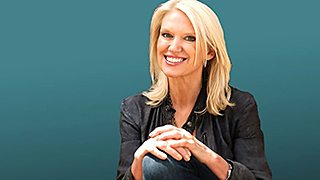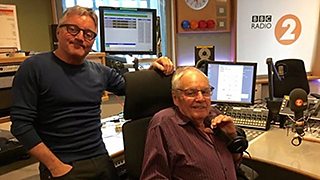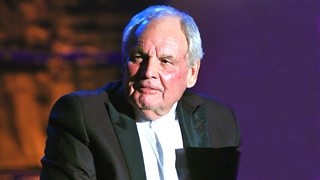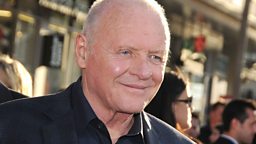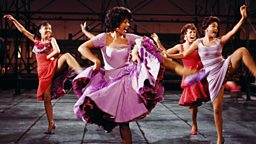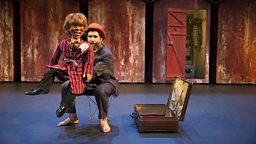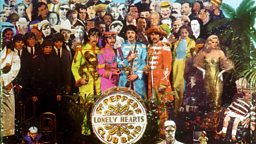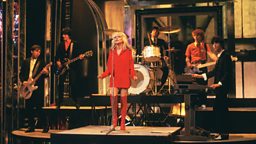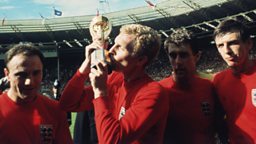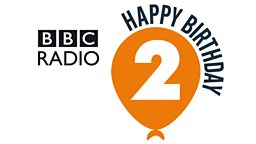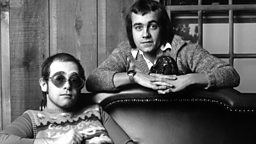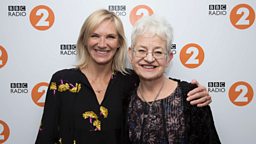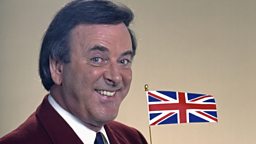10 rules for writing a memorable theme tune
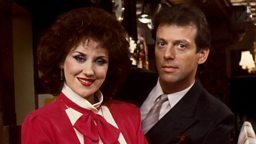
Our fond memories of TV and radio shows begin with their theme tunes. From the wheezing time-space swirl of Ron Grainer and Delia Derbyshire’s Doctor Who to the signature, booming drums that welcome us to Albert Square, they are some of the most recognisable pieces of music ever composed.
But what is the magic formula that makes for a great theme tune?
In ���˿��� Radio 2's , which returns to the airwaves this week with guests including Anneka Rica and Bob Harris, sharing their memories of how TV theme tunes have made an impact on them and their careers.
In the show Hatch - who wrote the themes for Crossroads, Emmerdale and Neighbours - will lift the lid on how to compose for television.
Below, he and fellow theme tune maestros Simon May (EastEnders, Howard’s Way) and Matthew Strachan (Who Wants to Be a Millionaire?, ���˿��� Front, arranger of Question Time) reveal the ten secrets of their trade. Interviews by Nick Hasted.
1. Sportsnight: Catchiness is crucial
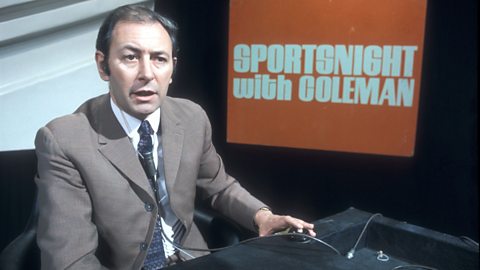
Sports Night Theme
Sports Night Theme
Tony Hatch: “The theme has got to be catchy from the start. Because for a lot of people, it’s a call-sign. They’re in another room, then they hear those notes, and they know they’ve got an ever-diminishing amount of time to get in front of the television."
Simon May: “The essence of a TV theme, like a pop song, is that it has to have a very strong hook, sonically and melodically. EastEnders has a very simple, binary structure. You can take out four bars and it still makes sense musically."
Matthew Strachan: “Sometimes the job is just coming up with a tune that people are going to remember. A bugle call saying ‘come and watch’ - the effect that the Archers theme has, or Coronation Street.”
TH: “When I wrote the theme for Sportsnight, I was told it’s about a lot of people running around very fast, so I made it very bright and breezy. Keith Mansfield was a specialist at that - his sports show themes are iconic. The one that I always ponder over is Wimbledon. I’m never quite sure how he put that sequence of notes together. It jumps very quickly from one chord to another. But it works, and everyone recognises it.”
2. Crossroads: Be flexible
TH: “With an action show, you need an action theme. But you can’t be too definite with soaps, because you have no idea what the story’s going to be. Crossroads was set in Birmingham, on a crossroads. On one side a family owned the corner shop, and another family ran the motel opposite. And because we didn’t know which were going to feature first, I wrote two themes that were played contrapuntally; whichever family was in the first scene, their theme would predominate. Of course, the show ran for 22 years and they forgot that idea after two months. It was always in my mind to write a simple, light theme, but not necessarily happy. You just do not know if the first scene will be around the table with a cup of tea, or in a graveyard.”
3. Some Mothers Do 'Ave 'Em: Describe the characters
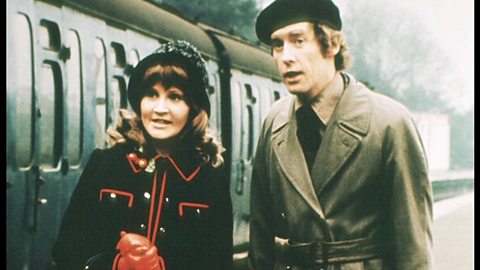
Some Mothers Do 'Ave 'Em Theme Tune
Some Mothers Do 'Ave 'Em Theme Tune
MS: “When I think of classic Ronnie Hazlehurst themes from the 70s, one that always strikes me is Some Mothers Do ‘Ave ‘Em. It’s a peculiar piece of music, because it’s written for two piccolos, and nothing else. It’s got a distinctive tune, but it’s also got a distinctive relationship between the two piccolos. You’ve got this contrary motion going on, and sometimes you get clashes between the two. So it sounds awkward, which is like the character, Frank Spencer. [The Fall and Rise of] Reggie Perrin’s a better example of what Hazlehurst was also able to do. It’s very melancholic. He managed to find something to convey the feeling of the main character, this poor bloke who feels like his life is pointless. In those days, composers were given much more licence to do that. And Ronnie Hazlehurst was of course the ���˿���’s Head of Music, so he probably just gave himself the job!”
4. Emmerdale: Work with the landscape
TH: “With Emmerdale, they gave me a storyboard - a sequence of still pictures of lonely country lanes, stone walls, a village, a pub, a broad expanse of meadows, some sheep. And I wrote exactly that: isolation, and a little bit of melancholy.”
SM: “The way the Emmerdale tune undulates is describing the hills and valleys that you see on the screen. And it has got a pastoral, country feel. It wouldn’t work as a theme to an urban show. And I love the theme to Dynasty. That trumpet is very evocative of power and influence.”
5. EastEnders: Trust your instincts
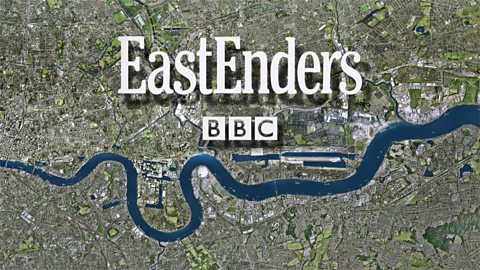
Eastenders Theme Tune
Eastenders Theme Tune
SM: “When I reflected the edginess and toughness of the EastEnders set and characters in my first attempt at the music, it was rejected by the producers. They wanted something that contrasted with the actual programme, that was more feel-good and up. With my second try I thought, ‘What’s my take?’ I’ve got a couple of Cockney friends, and the I way I would describe them is warm and loyal. So my inspiration didn’t come from the EastEnders set or script. It came from my subliminal understanding of what the Cockney character is about.”
6: Neighbours: Move with the times
Warning: third party content may contain adverts
TH: “Themes are getting shorter and shorter. Now they’ve got the opening theme of Neighbours down to around six seconds. It’s more of a jingle than a theme.”
SM: “A main TV theme has got to be very compressed now. With the proliferation of TV channels, the stations are nervous, because everybody’s got a zap button. You have to get that musical message across much more quickly."
MS: "The older style of programming that we grew up watching may not exist in 15 years, as on-demand and streaming take over, so you don’t need any feeling of transition from one thing to the next. It may be that programmes are bookended by stings or idents in future, like those little bursts of music you get in Friends.”
7. Who Wants to Be a Millionaire?: Build the tension… but not too much
MS: “There is this peculiarly over-hyped, hyperbolic feel to TV music since the ‘90s. To a degree, I feel slightly responsible, because of Who Wants to Be a Millionaire? ITV wanted to go quite dark and cinematic. Then music for all sorts of programmes did the same, so everything sounded urgent and important, and very, very serious. You’d have these mundane game shows with a middle-aged woman in a self-knitted cardigan rotating on an office chair, accompanied by this over-hyped nonsense which sounded like you were sitting underneath Concorde as it took off. Producers always said, ‘Keep it as tense as possible.’ I kept trying to say, ‘If there’s no contrast, it will become wallpaper. There is no loud without quiet.’ I always lost the argument.”
8. Eldorado: You’re only as good as the show
TH: “I can write a fantastic theme, but if the programme isn’t working, they’re going to take it off. In Australia, I did two series for Grundy before Neighbours. The first one, Richmond Hill, about a hospital, only ran about six weeks. Waterloo Station, about a Sydney police station, ran six weeks too. And Neighbours almost suffered the same fate, it was only getting decent ratings in Sydney. Grundy managed to sell it to Channel 10, they brought in Kylie and Jason, changed it from a middle-of-the-road adult show to young people, and thankfully it worked."
SM: “One of my personal favourites of my own themes is Eldorado. And sadly, that show got axed before its time. It was stunted in its early stages. And people don’t remember me for writing Eldorado!”
9. Coronation Street: If it ain’t broke...
MS: “If it’s a traditional kind of tune, like Coronation Street, EastEnders, or Emmerdale, then the audience gets upset if you play around with it too much. EastEnders has been tweaked a few times - in the 90s, they tried a groovier version. Emmerdale changed in the 80s with a horrid, cheap-sounding synth version. Then they did it with a huge orchestra, and it didn’t have the original’s wistful charm. I think when you’ve got something that’s run that long and is on that frequently, you’re best off leaving it alone.”
TH: “I find the Coronation Street theme particularly melancholy. It just evokes rain. A wet street. It doesn’t evoke the modern image of Manchester at all, does it? It’s very British. And very British that it’s kept the theme all this time. There’ve been about seven different versions of the Neighbours theme. I’m not totally mad about what they’ve done with the tempo. I find it difficult to sing along with now. But it’s still predominantly the theme I wrote.”
SM: “I think that it is dangerous to mess with a theme that the viewers are familiar with. That cockerel has not changed on the packet of Corn Flakes because it’s a very strong brand. The theme’s a kind of comfort, a reassurance.”
10. The Archers: Theme tunes matter

The Archers Theme Tune
The Archers Theme Tune
MS: “Once you put music out there, it belongs to other people - like when couples say, ‘Did you hear our song on the radio?’ And it’s the same in a small way with theme tunes. Something like The Archers, even though it can seem like quite a small, parochial thing, actually for people on a day-to-day basis it feels very meaningful, I think. It marks their days. And it’s been there all their lives.”
